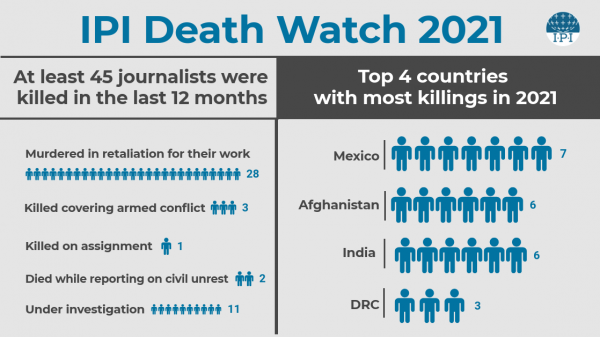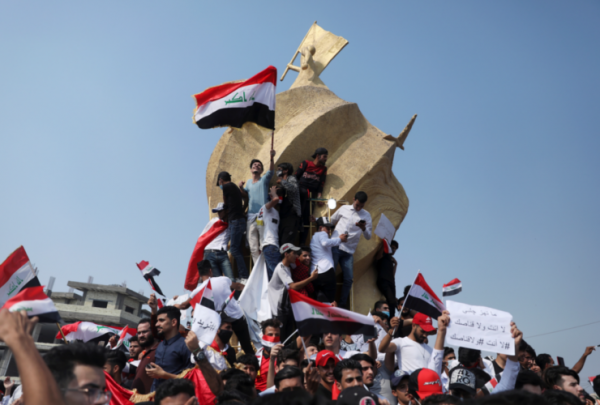According to information before IPI, a television station in the eastern Zayouna district of Baghdad was attacked by unidentified assailants early in the morning of 12 October, resulting in the death of 11 employees.
The attackers, some wearing police uniforms, drove up to the office of the Shaabiya satellite television station in a convoy of seven cars that appeared to be police vehicles. They shot dead two guards outside the building, then entered the office and opened fire, killing nine employees, many of whom were asleep after working overnight at the station. Among those killed was Abdul-Rahim Nasrallah, the head of the station’s board of directors and leader of the National Justice and Progress party, a small secular party which owned the station. Hassan Kamil, the executive manager of Shaabiya, survived the attack but was seriously injured.
The Shaabiya channel was newly founded in July and was set to begin broadcasting at the end of Ramadan in the last week of October. The channel, said to be aimed at a largely Sunni Muslim audience, had so far only broadcast test messages.
The raid on Shaabiya’s office is the second attack on a TV station in Baghdad in as many weeks. On 1 October, a car bomb blew up outside the Al-Rafidain TV station. Two pedestrians were killed and five station employees were wounded in the blast which blew out the windows of the building and damaged the offices inside.
Also in Baghdad, the body of a 29 year old journalist was identified in the city morgue on 10 October. Azad Muhammad Hussein, a reporter with Radio Dar Al-Salam was kidnapped by unidentified assailants from the Al-Shaab neighbourhood in the north of the city on 3 October. His body was identified one week later, showing signs of torture. Radio Dar Al-Salam is owned by the Iraqi Islamic Party, a major Sunni political group that joined the U.S. supported Iraqi government in early 2006.
Commenting on these events, IPI Director Johann P. Fritz said. “The attack on the Shaabiya office is another devastating example of how the media in Iraq are steadily being targeted by sectarian death squads intent on silencing voices through violence and intimidation.”
“The loss of life in this and other attacks that have taken place in Baghdad in recent weeks is deeply saddening and only serves to remind us that violence and instability pose the greatest threat to press freedom in Iraq. These acts contribute to the climate of fear that has gripped the Iraqi media in recent years since it has become the most murderous country from which to report.”


